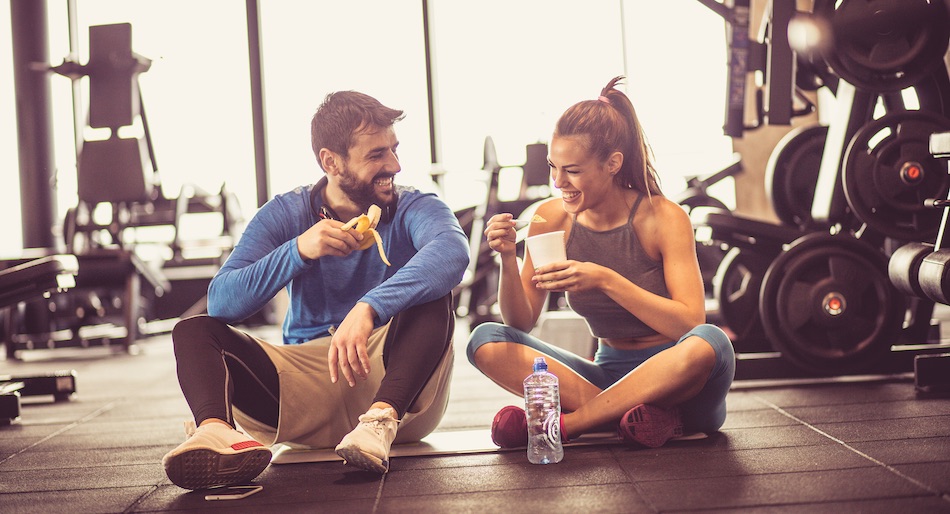The nutrition before training will depend on the duration, intensity, tolerance and environmental conditions of the sports practice.
Before, during and after will always be characterized by good hydration, in addition to carbohydrates, since they are the main source of energy during moderate to high intensity exercise. For the latter, it is advisable to start consuming carbohydrates four hours before.
"The farther away the training is, it is advisable to increase the amount of carbohydrates. It is recommended to consume 1 to 4 grams of carbohydrates per kilogram in the first four hours", explained María Fernanda Sterloff, nutritionist at the Clínica Bíblica Hospital.
Some examples of carbohydrates:
- 1 cup of oatmeal: 30 grams
- 1 banana: 22 grams
- Sweetened and flavored milk (individual): 18 grams
- 200 ml of yogurt: 14 grams
- 1 rice cracker: 5 grams
On the other hand, it is recommended that athletes drink 5-7 mL/kg of body weight, of liquids with sodium approximately 4 hours before a training session or race; and another 3-5 mL/kg, two hours before if the athlete did not urinate or if his urine is dark colored.
Example: 7ml per 63kg = 441ml.
"It is important to emphasize that this liquid must contain electrolytes, and above all sodium; it is not enough to drink pure water, since it is the first thing we lose when we sweat," Sterloff added.
What to eat DURING training?
Consuming carbohydrates during exercise provides fuel for both the muscles and the nervous system. The longer the duration of exercise, the more important carbohydrate intake becomes, as it helps maintain a higher intensity performance.
For sessions lasting longer than 2.5 hours, athletes should consume carbohydrate mixtures (glucose and fructose) that take advantage of multiple transport systems in the gut.
|
|
|
|---|---|
|
Less than 30 minutes |
Not required |
|
45 to 70 minutes |
Small amount or mouth rinses |
|
1 to 2.5 hours |
30 to 60 grams per hour in combination with sucrose, fructose and maltodextrin |
|
2.5 to 3 hours |
60 to 90 grams per hour, a mixture of glucose and fructose |
"The tolerance of each patient to these products is crucial, however, it is always necessary to consume some food that replenishes the glucose that the person lost during the training," the nutritionist explained.
Regarding hydration, the specialist advises drinking liquids every 15-20 minutes during training; "carbohydrate-free moisturizers in physical activity of less than one hour". Likewise, it is recommended to ingest between 400-1200 mg of sodium per hour, depending on the duration and intensity of the exercise.
What should I eat AFTER training?
Proteins are molecules composed of amino acids that help in the recovery after exercise, and in the repair of damaged muscle tissue, as well as to adapt to the demands of training.
There is high quality protein such as milk protein, whey, egg, or meat. Together with carbohydrates, what is required is to recover muscle mass. For this reason it is advisable to consume between 1 and 1.2 grams per kilogram of carbohydrates every hour for the next few hours.
Hydration plays a very important role, so it is recommended to rehydrate with 1 to 1.5 liters of liquid with sodium for each kilogram of body weight lost during exercise.
Thus, it is very appropriate to monitor nutritional needs during sports training.
You can learn all this information in detail in the following video:




